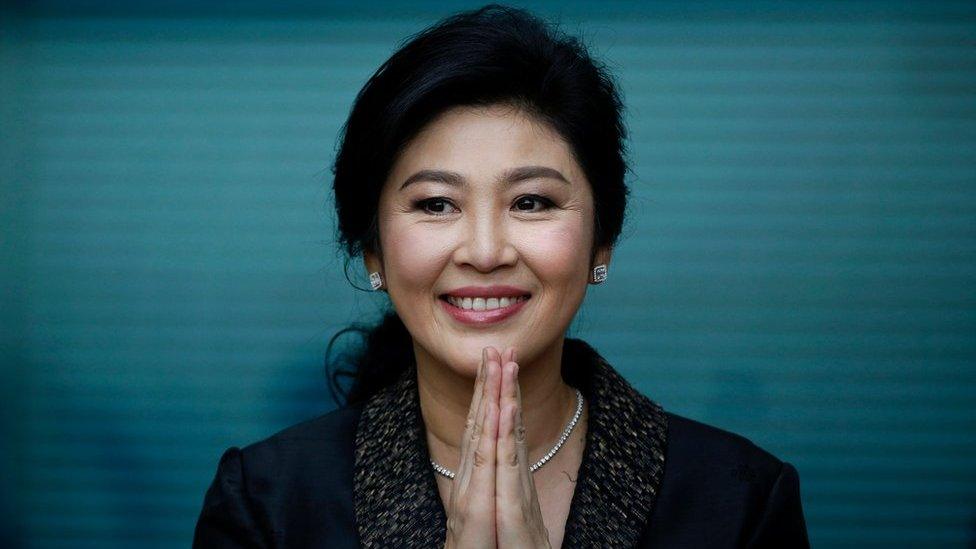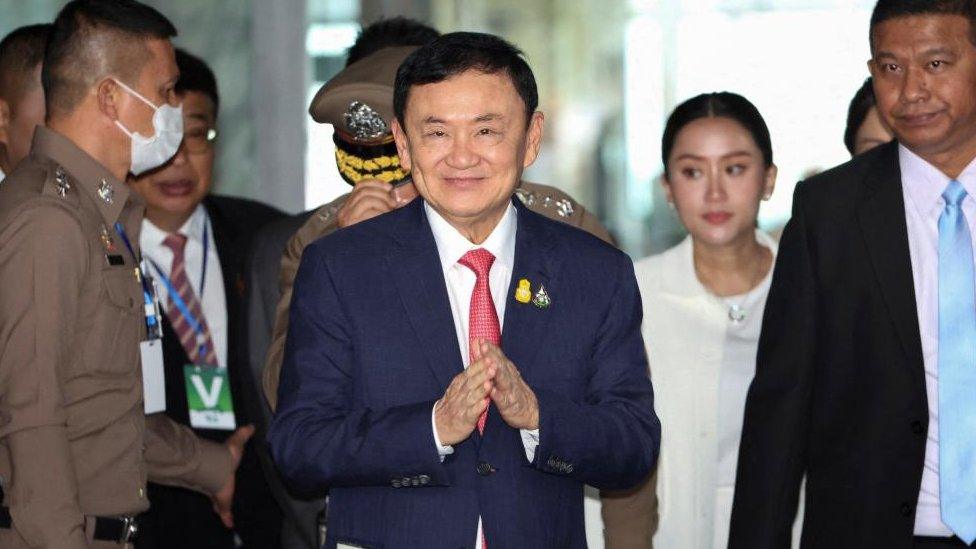Yingluck trial: Thailand ex-PM 'fled to Dubai' before verdict
- Published
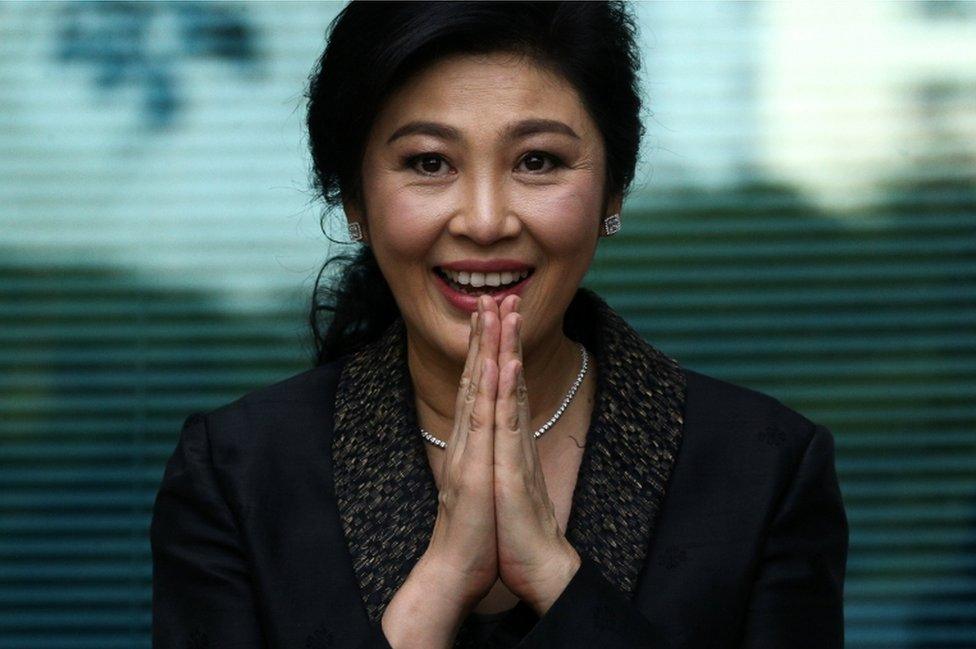
Yingluck Shinawatra was facing a lengthy prison term if found guilty
Thailand's ex-PM Yingluck Shinawatra fled to Dubai ahead of the verdict in her trial over a rice subsidy scheme, members of her party have said.
Pheu Thai Party sources said Ms Shinawatra left Thailand last week.
It was revealed on Friday that Ms Yingluck, who is charged with negligence, had gone abroad but the destination was not known.
When she failed to appear in court, an arrest warrant was issued and her bail was confiscated.
Dubai is where her brother, former prime minister Thaksin Shinawatra, lives in self-imposed exile. He went there to avoid a 2008 jail sentence for corruption.
"We heard that she went to Cambodia and then Singapore, from where she flew to Dubai. She has arrived safely and is there now," a senior member of the Shinawatras' party told Reuters.
Deputy national police chief Gen Srivara Rangsibrahmanakul said police had no record of Ms Yingluck leaving the country and were following the matter closely.
Thailand's Deputy Prime Minister Wissanu Krea-ngam said Ms Yingluck's location would "be clear soon".
Judges have postponed the negligence verdict until 27 September.
Ms Yingluck, 50, has denied any wrongdoing in the rice subsidy scheme, which cost Thailand billions of dollars.
If found guilty at the end of the two-year trial, she could be jailed for up to 10 years and permanently banned from politics.

How could Yingluck Shinawatra have left?
Analysis by Jonathan Head, BBC News, Bangkok
Yingluck Shinawatra was the most high-profile criminal defendant in Thailand and was constantly monitored by the military authorities. So how was she able to leave the country just hours before the verdict was due to be read out? Immigration authorities say they have no record of her leaving the country.
However, it is a poorly-concealed secret that some in the military government would have been happy to see her leave the country before the verdict.
Had she been convicted and jailed, she could have been seen as a victim by her supporters. The government was nervous about their reaction. Acquitting her, though, would have been equally unacceptable to her hard-line opponents, many of them very influential.
That would also have undermined the justification for the military coup which overthrew her government. So it is unlikely anyone tried to stop her leaving, or that they will try to get her back.

What happened in court?
Ms Yingluck's lawyer had requested a delay in the ruling, telling the Supreme Court that she had vertigo and a severe headache and was unable to attend.
But the court said in a statement that it did not believe she was sick as there was no medical certificate, and that the alleged sickness was not severe enough to prevent her travelling to court.
"Such behaviour convincingly shows that she is a flight risk. As a result, the court has issued an arrest warrant and confiscated the posted bail money," the statement said.
Ms Yingluck posted $900,000 (£703,000) bail at the beginning of her trial.
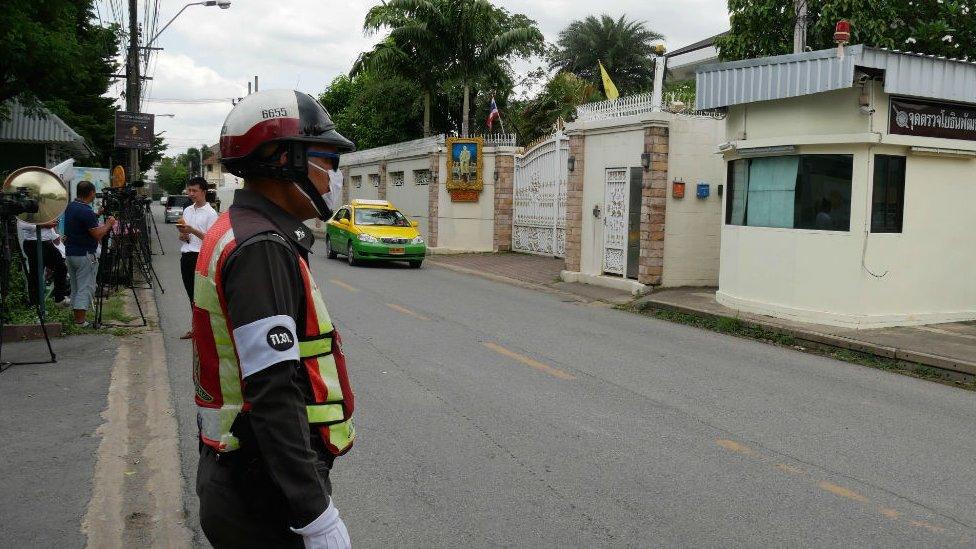
Journalists waited outside Ms Yingluck's home in Bangkok, expecting her to attend the court
Friday's turn of events took many by surprise, including the hundreds of people who turned up outside the Supreme Court in Bangkok to support Ms Yingluck.
What is the trial about?
Ms Yingluck, who became Thailand's first female prime minister in 2011, was impeached in 2015 over the rice scheme by a military-backed legislature, which then brought the legal case.
The scheme, part of Ms Yingluck's election campaign platform, was launched shortly after she took office.
It was aimed at boosting farmers' incomes and alleviating rural poverty, and saw the government paying farmers nearly twice the market rate for their crop.
But it hit Thailand's rice exports hard, leading to a loss of at least $8bn and huge stockpiles of rice which the government could not sell.
Though it was popular with her rural voter base, opponents said the scheme was too expensive and open to corruption.
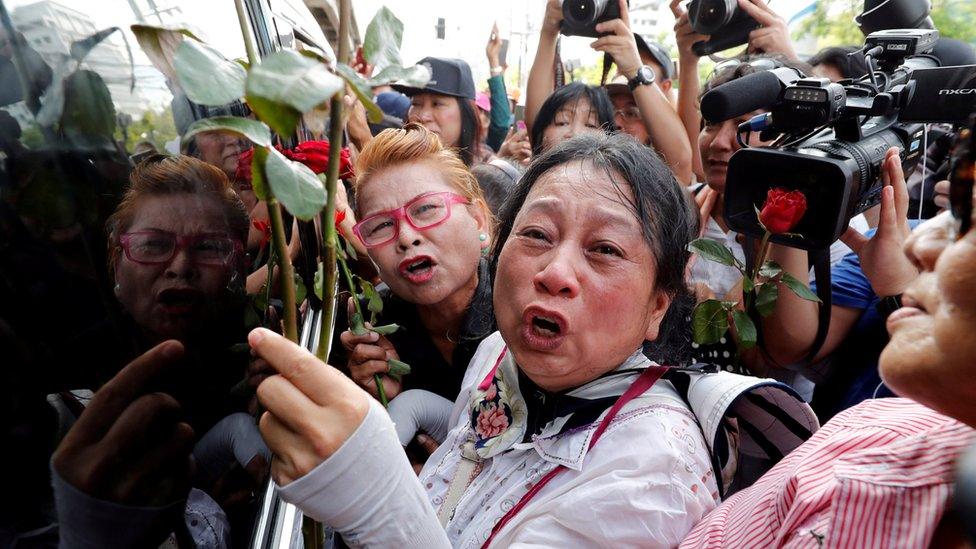
Hundreds of Ms Yingluck's supporters had gathered outside the court on Friday
During her trial, Ms Yingluck had argued she was not responsible for the day-to-day running of the scheme. She has insisted she is a victim of political persecution.
How popular is Yingluck Shinawatra?
Her time in office was overshadowed by controversy as well as strong political opposition.
The youngest sister of Mr Thaksin, she was seen by her opponents as a proxy for her brother, who was controversially ousted by the military in 2006.
Both siblings remain popular among the rural poor, but are hated by an urban and middle-class elite.
Their Pheu Thai party has - under various different names - won every election in Thailand since 2001.

Timeline of Yingluck's rice scheme controversy
May 2011- Yingluck Shinawatra is elected PM, and shortly afterwards begins rolling out her rice subsidy scheme
January 2014 - Thailand's anti-corruption authorities investigate Ms Yingluck in connection to the scheme
May 2014 - She is forced to step down from her post after Thailand's constitutional court finds her guilty of abuse of power in another case. Weeks later the military ousts what remains of her government
January 2015 - An army-backed legislature impeaches Ms Yingluck for corruption over her role in the rice scheme, which effectively bans her from politics for five years. It also launches legal proceedings against her
August 2017 - Ms Yingluck fails to appear at court for the verdict, claiming ill health. It is later revealed she left for Dubai
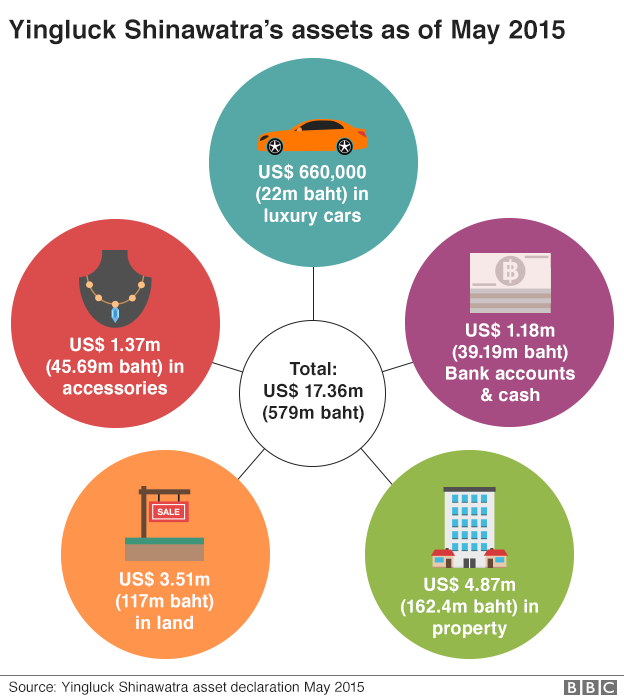
- Published24 August 2017
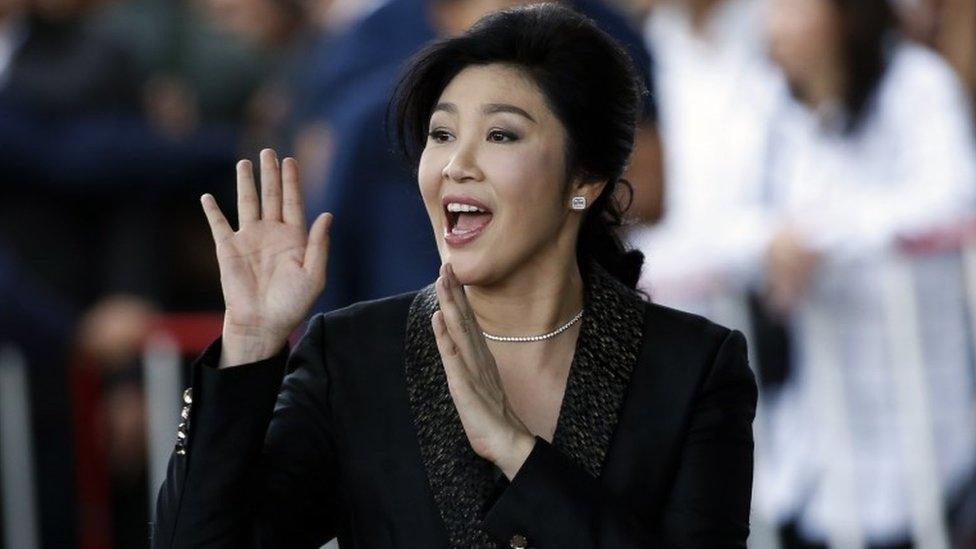
- Published23 August 2017
